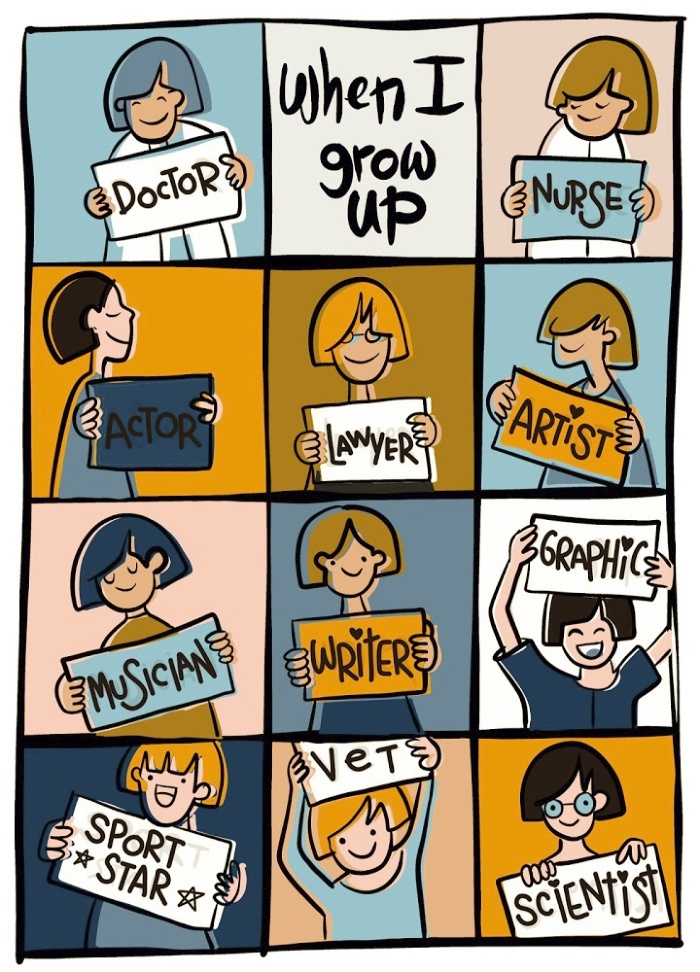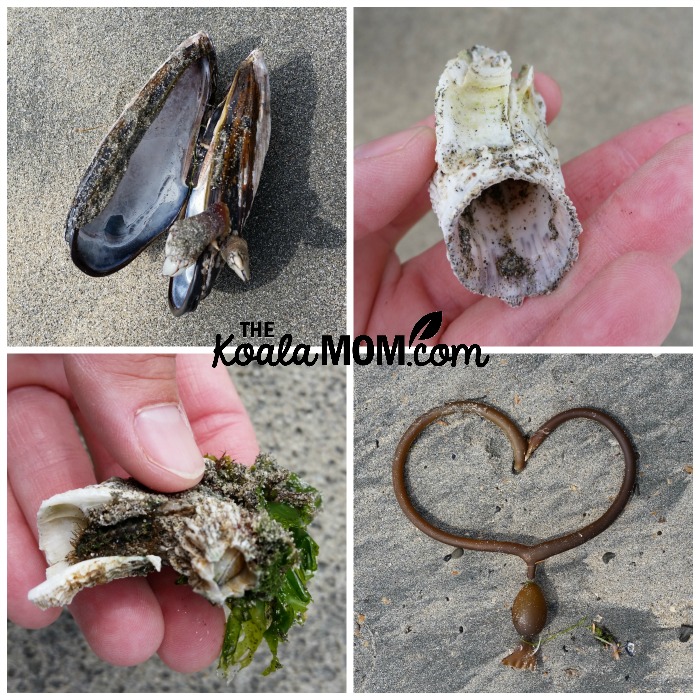One of the big questions facing homeschool parents is how to help our kids achieve their educational goals. We may face doubts about whether or not we are qualified to teach our children certain subjects or to grant them the marks they need to get into university. As a homeschool graduate and a homeschool mom, this is a question that I’ve often considered. Here are my tips for helping your homeschooled kids achieve their educational goals.

I received compensation for this post; all opinions expressed remain my own.
Right now, Sunshine wants to be a marine biologist when she grows up. I can see how our west coast life has fostered this interest in her. Some of the ways I plan on helping her achieve her educational goals include:
- online science classes that allow her to explore marine biology and related sciences
- volunteering with local aquariums or marine organizations
- finding books and movies about marine biology and marine exploration
- fostering personal strengths and skills that may be useful in this career
- setting specific educational goals to reach that dream career
Take Local and Online Classes
Young kids change their career goals on a daily basis. Perhaps today she wants to be a veterinarian (as she hauls her stuffed puppy everywhere with her), and tomorrow she wants to be a fashion designer (as she twirls about in her tutu). As kids get older, their personalities, strengths and weaknesses, and interests start to deepen.
The elementary stage is a great time for children to explore their interests and discover new talents. For example, my daughters have tried all sorts of classes, from pottery to gymnastics, skating to computer coding, floor hockey to musical theatre. I’ve encouraged them to explore and experience new things, and then I pay attention to what they enjoy doing, what they talk about, what they want to do again.
Browse the classes offered both in your local area and online. The internet has opened up a world of possibilities for students, as many classes can now be taught via computer. Even if you live in a small town, your child can learn new skills or pursue almost any interest, from online science classes to online piano lessons. If you’re worried about teaching higher-level subjects such as chemistry or physics in you rhomeschool, online classes are a great solution.
 For example, College Prep Science offers live, Christ-centered science classes for homeschooled students in grades 6 to 12. Founder and instructor Greg Landry is a homeschool dad and former college professor. He holds a Master of Science degree from Louisiana State University. Greg has “a passion for teaching students to see God’s hand in every aspect of His creation that surrounds us—to help them see that God’s creation didn’t just happen by chance—it wasn’t an accident, a fluke of nature.”
For example, College Prep Science offers live, Christ-centered science classes for homeschooled students in grades 6 to 12. Founder and instructor Greg Landry is a homeschool dad and former college professor. He holds a Master of Science degree from Louisiana State University. Greg has “a passion for teaching students to see God’s hand in every aspect of His creation that surrounds us—to help them see that God’s creation didn’t just happen by chance—it wasn’t an accident, a fluke of nature.”
Biology and chemistry (two subjects Sunshine will likely need to become a marine biologist) weren’t my strong points in high school or university. As she approaches higher-level sciences (such as junior high next year!), I’ll be investigating local and online classes to help her achieve her educational goals. The pre-biology and pre-chemistry classes at College Prep Science look like great options, as she can experience a classroom with a supportive teacher and like-minded students, while remaining at home and having time to pursue her other interests.
Volunteer to Achieve Educational Goals
Another way of helping your kids achieve their educational goals is to seek volunteer opportunities. Volunteering provides many benefits. First, students are given the chance to try out a chosen career or experience a specific work environment and see if they enjoy it. Second, volunteer experience is useful later when they begin applying for college admission, bursaries, and jobs.
I volunteered for a year or two with our local veterinarian. I had the chance to assist her during appointments and surgeries, take care of the sick or recovering animals, and see how a veterinarian office worked behind the scenes. While I enjoyed the experience, I realized this wasn’t something that I wanted to pursue as a career. It still remains a fun memory.
How old your child needs to be to volunteer depends upon where she wants to volunteer. Think about places your child could volunteer, such as local zoos, aquariums, businesses, etc. Look up their websites or call them to inquire about volunteering opportunities. If your child is too young to volunteer, are there other ways she can get involved?
You may have to be creative in finding volunteer opportunities for certain dreams (e.g., if your child wants to be an astronaut). What are related skills or places that your child could work? For example, Sunshine could volunteer with a pet store that has a large selection of aquariums and underwater pets. Or we could get an aquarium for her to start learning about specific marine animals, like our friend’s axolotls.

Read, Read, Read
Reading is a great way to encourage your child to learn more about their dream career! Help them look up books and movies at your local library. Nonfiction books are a good place to start, but consider biographies and fiction as well. For example, Sunshine loves the Free Willy movies, which deal with the impact of captivity on orcas. Who are famous [insert child’s dream career] whom your child could learn about?
Books and movies may help your child learn about their dream career, but also how to achieve it. Discuss with your kids what the person did to succeed at their career—for example, what skills they possessed, what character strengths they exhibited, what talents they developed.
Develop Strengths and Skills
Aside from the technical knowledge needed to do a specific career, what other skills may be required? Your child could be too young to start homeschool biology classes, but they can work on developing other strengths that will help them achieve their educational goals.
For example, a marine biologist needs to be able to research, write and speak well, problem solve, observe, and analyze data. Many of those are generally useful skills that will translate to a variety of jobs (in case your child changes her career goals in a few years!).
My dad always encouraged my writing interests, saying it would be useful in any profession. Similarly, I can help Sunshine develop good writing skills now, observe the world around us (whether we’re at the beach or in the mountains), problem solve in a variety of situations, research marine biology and other topics, and more.

Other skills Sunshine may need as a marine biologist include swimming, scuba diving, and sailing or boating. She’s a bit young to start scuba diving, but she takes swim lessons every year. We could look for boating courses for her as well.
Sit down with your child to talk about their career or educational goals. Brainstorm what skills and strengths they think they might need to achieve those goals. Research more about their career online (government, job-hunting, and university websites may be helpful). Make a list of skills and strengths they can start learning and developing now.
Set Specific Educational Goals
As your child approaches junior high and high school, they can start setting specific educational goals. Encourage them to dream big and think about what they want to do past university. Their earlier childhood dreams may have crystallized into specific career goals—or they may still be uncertain about what they want to do with their lives.
When my brothers and I were heading into high school, my dad’s advice was to keep all the doors open. Even though I already knew that I likely wasn’t going to pursue a career in science, my dad encouraged me to take biology, chemistry and physics in high school—just in case I changed plans later. I did take biology in university, and could have taken other science courses. Other friends of mine were limited in their choices of university sciences (and further careers) because they’d never completed any high school science classes.
If your child knows what career they want to pursue, have them look up the requirements for that career. What degree or training do they need? Where can they get that training? What are the admission requirements for university or trade school? How will they meet those requirements?
Work backwards from the career to the high school courses they need in order to reach each next step to their chosen career. Then you can enroll them in the required high school courses through places such as College Prep Science.
If your child is unsure what to pursue after high school, encourage them to keep exploring. I always tell my kids that they can’t say they don’t like a meal until they’ve taken several bites. Similarly, your child won’t know if she likes biology or musical theatre without experiencing it. It may be impossible for our children to try every sport, class and interest. This is where we can steer them towards their strengths and the interests we’ve seen them develop over the years—while also encouraging them to keep the doors open and to try new things.
What is your child’s current career goal? How do you plan to help him or her achieve that?
Check out my Big List of Homeschool Science Resources for more ideas to support your homeschool learning!


No Responses Yet